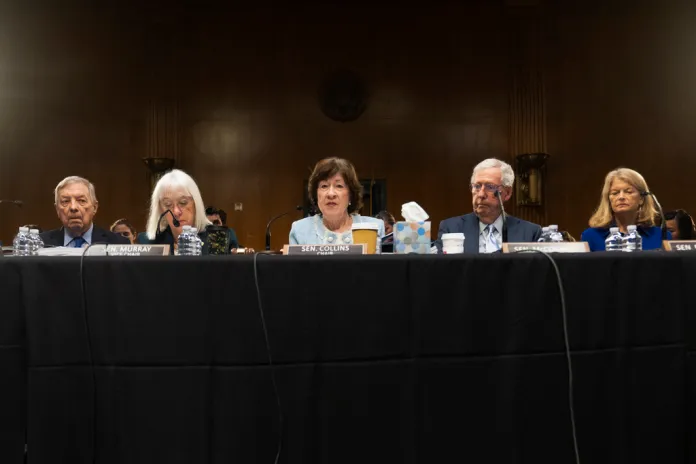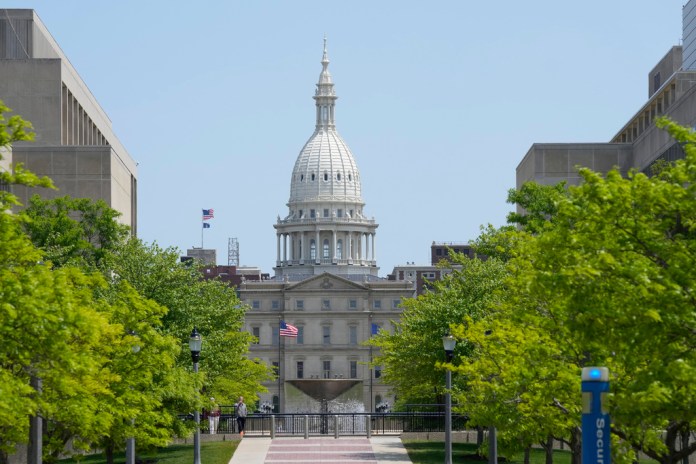Judges in Michigan and North Carolina reject GOP challenge to overseas ballots – Washington Examiner
Judges in Michigan and North Carolina have dismissed challenges from the Republican National Committee (RNC) regarding overseas ballots. The RNC argued that U.S. citizens living abroad who have never resided in the states where they wish to vote should be barred from participating in elections. However, the courts ruled against the RNC’s lawsuits, emphasizing that both Michigan and North Carolina have established rules allowing overseas voters—particularly military members and their families—to cast ballots.
In Michigan, Judge Sima Patel criticized the timing of the RNC’s lawsuit as an attempt to disenfranchise eligible voters who are connected to the state. She stressed that federal law mandates states to accommodate military and overseas voters and their dependents. Likewise, in North Carolina, Judge John W. Smith rejected the RNC’s request, noting the absence of evidence supporting claims of fraudulent voting. He highlighted that the voting rules in question had bipartisan support since their enactment in 2011 and had been consistently applied without issue.
The decisions underscore the ongoing legal battles regarding voter eligibility and election integrity, particularly for overseas ballots, as the number of civilian voters abroad surpasses military voters. Despite claims from some GOP figures, including former President Donald Trump, that such legal challenges are vital for election integrity, the recent court rulings reaffirm existing voting rights for overseas individuals.
Judges in Michigan and North Carolina reject GOP challenge to overseas ballots
Judges in two battleground states rejected lawsuits from the Republican National Committee challenging some overseas ballots.
The GOP made similar cases in both Michigan and North Carolina, arguing that U.S. citizens who live overseas but have not resided in the state they would be voting in should not be allowed to vote. Both lawsuits were rejected in the states.
For years, Michigan has allowed eligible residents, uniformed service members, and other citizens living outside the United States to vote in federal elections, which is required by federal law.
Information on the matter from Michigan’s secretary of state says, “A United States citizen who has never resided in the United States but who has a parent, legal guardian, or spouse who was last domiciled in Michigan is eligible to vote in Michigan as long as the citizen has not registered or voted in another state.”
Judge Sima Patel of Michigan’s Court of Claims said the RNC filed the lawsuit too late, calling it an “11th-hour attempt to disenfranchise” spouses and children of former Michigan residents who now live abroad.
“The federal government requires states to permit absent uniformed services and overseas voters, as well as their spouses and dependents, to apply for and vote,” Patel wrote.
Last week, Michigan officials said they had received about 16,000 requests for overseas ballots.
In North Carolina, the RNC’s request for an emergency court order to require election officials to set aside ballots from overseas voters who had not lived in the state was denied by Wake County Superior Court Judge John W. Smith.
Smith said there was “absolutely no evidence that any person has ever fraudulently claimed that exemption and actually voted in any North Carolina election.”
He noted that the election rule the RNC challenged “has been on the books at least since 2011 as a bill adopted with bi-partisan support,” adding that both sides of this lawsuit “have been involved in elections under the existing statute since its passage without complaint.”
Civilian voters abroad began outnumbering the number of military voters overseas starting in 2016, but the military vote has been trending less Republican in recent elections.
Former President Donald Trump and his GOP allies claimed these cases were essential to securing election integrity this year.
A similar federal lawsuit was brought by GOP Pennsylvania Reps. Guy Reschenthaler, Dan Meuser, Glenn Thompson, Lloyd Smucker, Mike Kelly, and Scott Perry, all six of whom did not vote to certify the results of the 2020 election. Legal experts believe it will turn out similarly to Michigan and North Carolina as this issue was filed after state officials began sending out ballots to overseas voters. A ruling is expected soon.
Louis Caldera, a former secretary of the Army, told the Hill that the lawsuits send “completely the wrong message” to military voters with a lengthy voting registration process.
“There has not been a problem. No one can point to any case of a military member voting who was not entitled to vote,” he said. “It’s very disturbing.”
" Conservative News Daily does not always share or support the views and opinions expressed here; they are just those of the writer."




